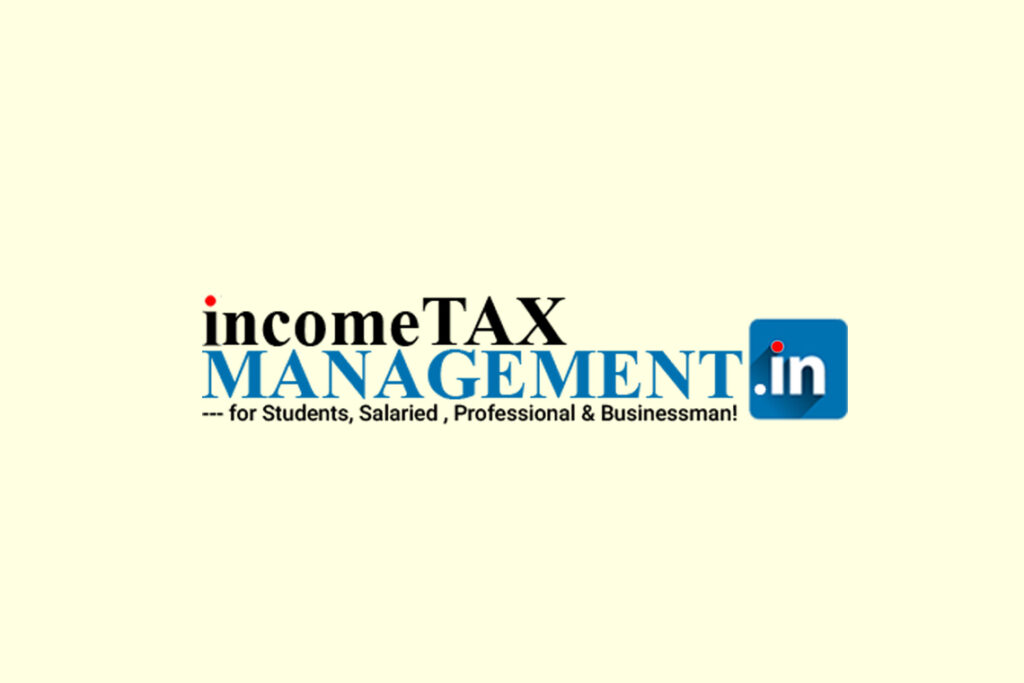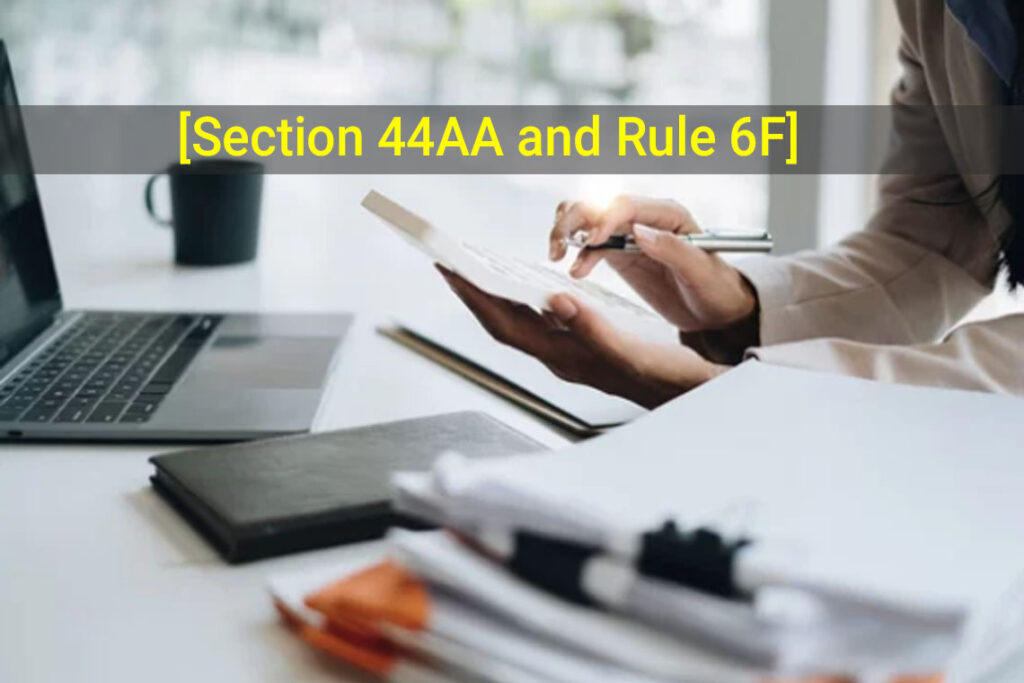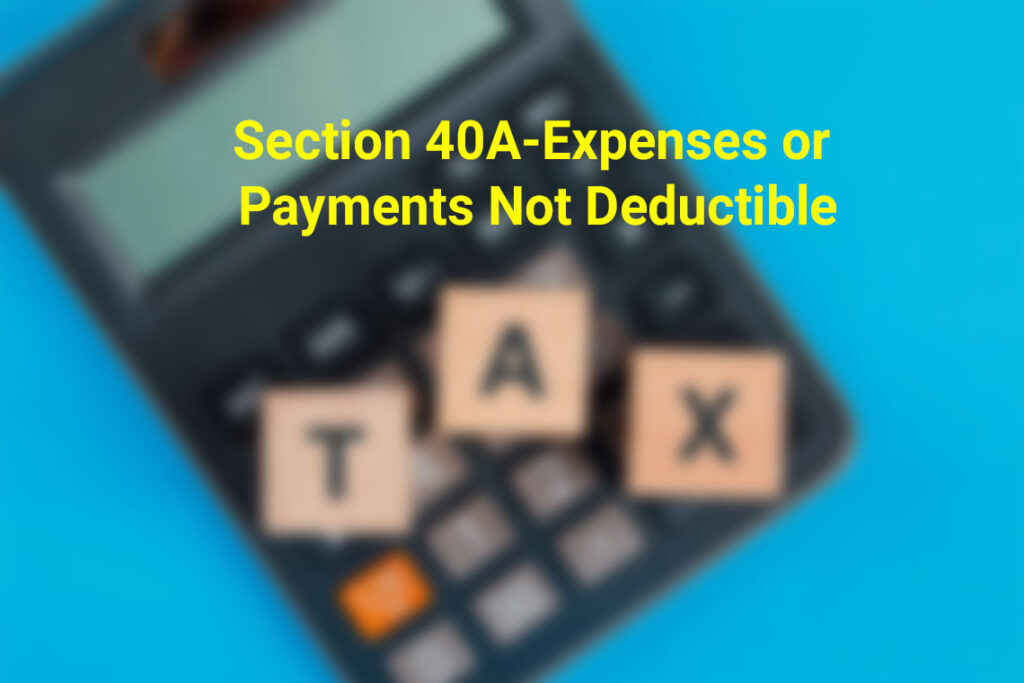Any expenditure (not being expenditure of the nature described in sections 30 to 36) and not of capital or personal expenses are allowed as deduction under section 37(1)
Any expenditure (not being expenditure of the nature described in sections 30 to 36) and not being in the nature of capital expenditure or personal expenditure of the assessee, laid out or expended wholly and exclusively for the purposes of the business or profession, shall be allowed as deduction under section 37(1) in computing the income chargeable under the Head “Profits and Gains of Business or Profession”.
1. Expenditure Not Allowed as Deduction u/s 37(1)
- As per Explanation 1 to section 37(1), expenditure incurred by an assessee for any purpose which is an offence or which is prohibited by law shall not be deemed to have been incurred for the purpose of business or profession and no deduction or allowance shall be made in respect of such expenditure. The amendment is applicable for assessment year 1962-63 and subsequent years.
- As per Explanation 2 to section 37(1) inserted by the Finance (No. 2) Act, 2014, any expenditure incurred by an assessee on the activities relating to corporate social responsibility (CSR) referred to in section 135 of the Companies Act, 2013 shall not be deemed to have been incurred for the purpose of business and hence shall not be allowed as deduction under section 37(1).
2. Conditions for allowance under section 37(1)
(a) Such expenditure should not be covered under the specific sections, i.e. sections 30 to 36.
(b) Expenditure should not be of capital nature.
(c) The expenditure should have been incurred during the previous year.
(d) The expenditure should not be of a personal nature.
(e) The expenditure should have been incurred wholly or exclusively for the purpose of the business or profession.
| Deduction under section 37(1) is subject to overriding provisions
In determining whether a particular item of expenditure is or is not deductible under section 37(1) (or under section 30 to 36) it is necessary to examine whether the deduction is subject to any overriding provisions contained in sections 37(2B), 40, 40A and 43B. Further there are special provisions for computation of business income in certain special cases like insurance business, retail trade, civil construction, royalty, etc. which are covered under sections 43D, 44, 44A, 44AD, 44AE, 44B, 44BB, 44BBA, 44BBB, 44C, 44D, and 44DA. These are discussed in relevant paras later. |
Expenditure should have been incurred in the previous year:
The expenditure, claimed by an assessee, must be an expenditure incurred in the relevant previous year. If an assessee follows the mercantile system of accounting, deduction for an expenditure can be claimed by him in the year to which it relates, even though liability for it was neither paid nor ascertained before the close of the accounting year, both these events occurred during the close of the accounting year.
Commercial expediency:
Only expenditure laid out or expended wholly or exclusively for the purpose of business is allowable. The twin requirements, therefore, are that the expenditure should be—
(a) Wholly and exclusively.
(b) For the purpose of business.
Wholly and exclusively does not mean necessarily. The businessman, and not the tax collector, is the proper judge for the justification of the expenditure. Therefore, if the assessee establishes that the expenditure was incurred for the purpose of the business, the Assessing Officer cannot disallow the same on the ground that there was no necessity.
3. Examples of expenditure allowable as a deduction u/s 37(1)
Remuneration to employees:
Salary and perquisites paid to the employees of the assessee are allowable as a deduction. However, salary paid to the proprietor of the business is an appropriation of profit and shall not be allowed as deduction. Compensation paid to the employees in connection with the termination of employment on ground of commercial expediency is also allowable. Salary paid by a firm to its partners is allowed as deduction subject to certain limits and conditions.
Payment of penalty/damages:
Penalty is normally levied for breach of law and are, therefore, generally not allowable as deduction. However, at times an amount though termed as penalty, is purely compensatory in nature. For example, damages, penalty or interest paid for delay in completion of a contract, though termed as penalty are really in the nature of a compensatory payment and are therefore, allowable as a deduction. However, penalties paid to customs authorities, sales-tax authorities, income-tax authorities, etc for infringement of law are not allowed. Levy for failure to pay sales tax within time is partly compensatory and partly penal, compensatory part is allowable and penal part is disallowable.
Legal expenses:
All legal expenses, incurred in connection with the business or profession of the assessee, are allowable, irrespective of the result of the legal proceedings. However, legal expenses on criminal prosecution are not deductible, as they are not incidental to the business or profession.
Legal expenses to defend or maintain the title to a capital asset of the assessee’s business are allowable, but expenses to acquire a title are not allowable because they are of a capital nature. Similarly, litigation expenses for protecting the trade or business and for protection of assessee’s trade mark are allowed. Legal and court expenditure spent for preparation and pursuing income-tax appeals are allowable expense.
Expenditure on raising loans:
Expenses of various types incurred in connection with raising of loans, for the purposes of the business, are allowable as a deduction. Therefore, legal charges for obtaining the loans from financial institutions, legal charges for drafting various deeds, brokerage paid for raising loans, stamp and registration charges, shall be allowed as deduction.
Interest:
While Section 36(1)(iii) makes a specific provision for allowing a deduction in respect of interest on money borrowed for the purpose of business, other kinds of interest payments in respect of interest do not fall under that Section. If these payments have been made wholly and exclusively for the purposes of business, they can be allowed u/s 37(1). Some of these could be:
(i) interest on deferred payment for purchase of assets;
(ii) interest on delayed payment of electricity charges;
(iii) interest on purchase price of raw material;
(iv) any amount paid ‘in lieu of interest’ in compromising a dispute with a trade creditor.
Expenditure on advertisement:
Any expenditure incurred during the previous year on advertisement for the purpose of business and profession shall be allowed as deduction.
Expenditure incurred for sports tournaments organised, which directly result in publicity and advertisement of the assessee and its products, qualify for deduction.
Expenditure incurred on putting up stall in exhibition organised in connection with centenary celebrations of Congress Party was held by the Tribunal to be expenditure on advertisement.
Expenses allowable under specific instructions of CBDT:
(i) Diwali and Mahurat expenses.
(ii) Payment for telephone/telex connection.
(iii) Payment to Registrar of Companies: The fee paid to the Registrar of Companies are in connection with the company’s legal obligations to be discharged under the Company law and are an essential part of the company’s business activities and are therefore, allowed.
(iv) Annual listing fee: Annual listing fee paid to a stock exchange is allowable.
(v) Professional tax by the business assessee.
4. Expenditure not allowable as deduction under section 37(1)
(1) Fees paid to the Registrar of Companies for bringing about change in the Memorandum and Article is a capital expenditure.
(2) Fee paid to Registrar of Companies for enhancement of the capital of a company is a capital expenditure.
(3) Expenditure incurred by the assessee for getting vacant possession of land owned by it, is not revenue expenditure.
(4) Bank guarantee commission for payment of taxes is capital expenditure.
(5) Payment for obtaining tenancy rights was in the nature of premium, though called contribution, is capital expenditure.
(6) Penalty paid for violation or infringement of any law is not allowable.
(7) Expenditure incurred by a company in connection with shifting of his registered office is not allowable.
(8) Expenditure incurred in dismantling of building in order to construct hotel is not allowed as these are capital in nature.
(9) Interest paid for non-payment, less payment, delayed payment, deferment of advance tax cannot be allowed as business expenditure nor is it in the nature of payment of other taxes like purchase tax expenditure.
(10) Sales tax is a tax on the sale or purchase of goods and not on profits, hence deductible expense. But taxes such as income-tax, surcharge, etc. are not expenditure laid for the purposes but are paid after the profits are earned, hence not deductible expenses.

![General Deductions [Section 37(1)]](https://incometaxmanagement.in/wp-content/uploads/2023/09/General-Deductions-Section-371-1024x683.jpg)

![Compulsory Tax Audit of Accounts [Section 44AB]](https://incometaxmanagement.in/wp-content/uploads/2023/09/Compulsory-Tax-Audit-of-Accounts-Section-44AB-1024x683.jpg)






![Expenses allowed as a Deduction [Sections 30 to 35]](https://incometaxmanagement.in/wp-content/uploads/2023/09/Expenses-allowed-as-a-Deduction-Sections-30-to-35-1024x683.jpg)